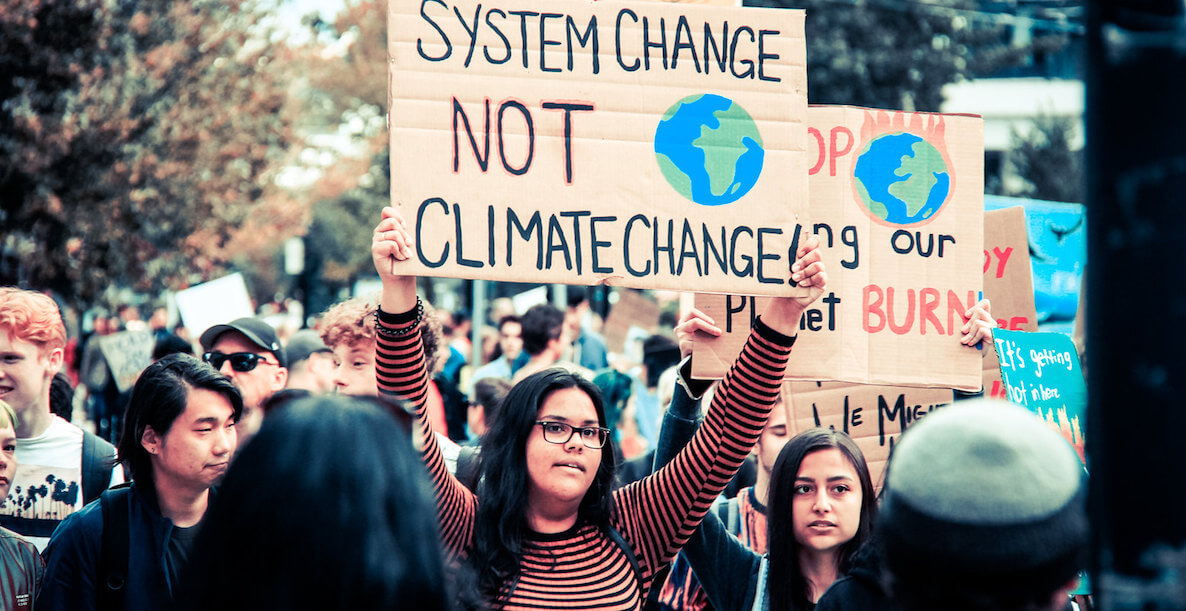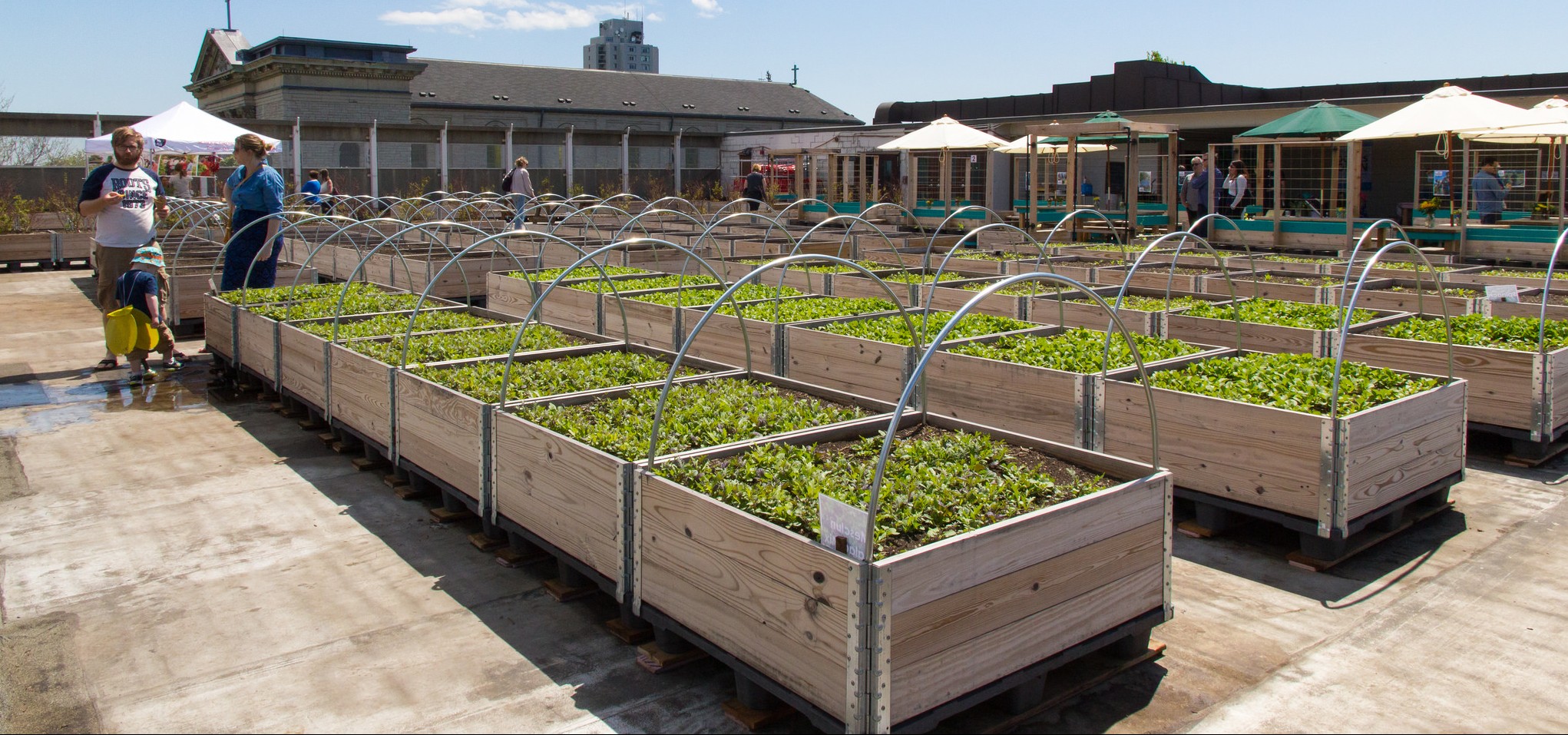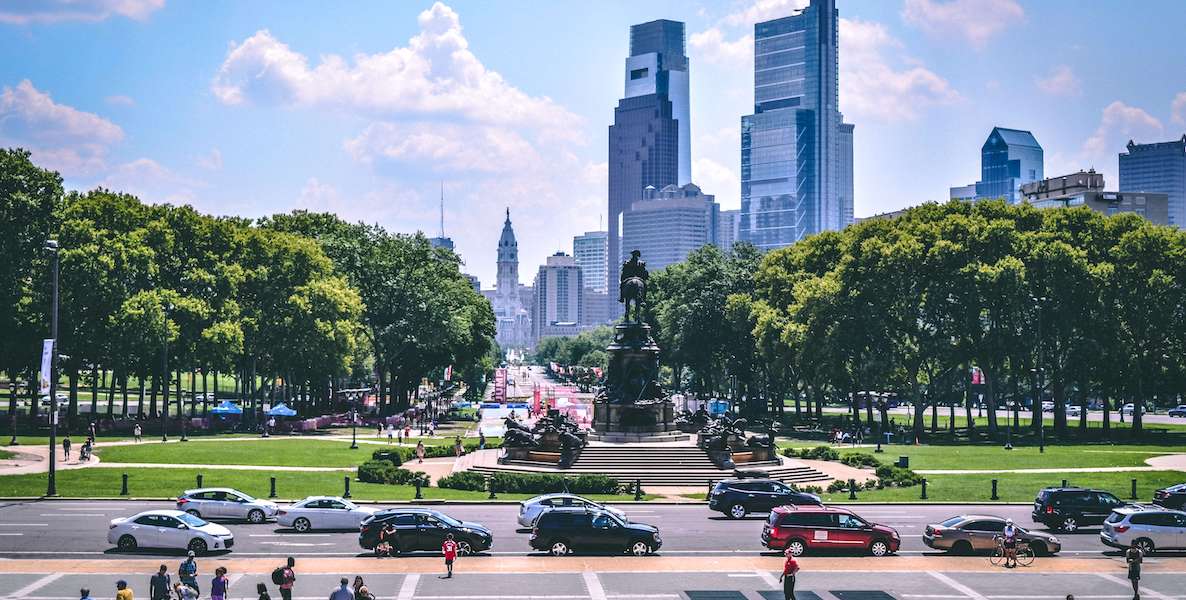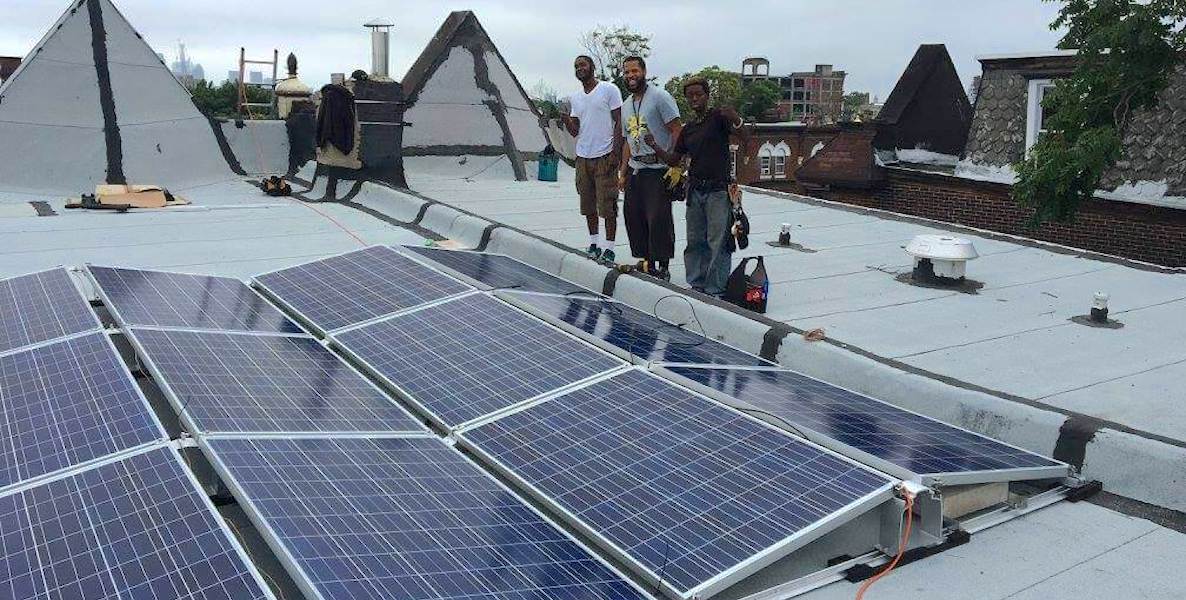![]() More than 1.5 million Pennsylvanians have filed for unemployment in the last five weeks—and over 26.45 million have filed nationwide. It’s clear the economy is in shambles.
More than 1.5 million Pennsylvanians have filed for unemployment in the last five weeks—and over 26.45 million have filed nationwide. It’s clear the economy is in shambles.
And as Congress drafts stimulus bills to reassemble the pieces, Daniel Aldana Cohen at the University of Pennsylvania has a recommendation: Make them green.
Cohen is an assistant professor of sociology and director of the school’s Socio-Spatial Climate Collaborative, a hub for social science research on climate change.
And as of last month, he’s a co-author of “A Green Stimulus to Rebuild Our Economy,” an open letter to Congress advocating for policies that aim to mitigate the Covid-induced economic crisis, while addressing two other crises: climate change and extreme economic inequality.
“If you live in Philly, you know that buses go down neighborhood streets all the time,” Cohen says. “It would make a pretty big difference if instead of belching smoke, they were belching nothing.”
On March 27, Congress passed the $2 trillion Coronavirus Aid, Relief, and Economic Security Act (CARES). But as the pandemic and resulting economic slump drag on, lawmakers are preparing for negotiations for additional relief packages.
![]() “We need immediate short-term relief, but we also need a plan to reconstruct the economy,” Cohen says. “And it would be truly insane to choose a low-job, fossil fuel-driven pathway to do that. That will only make us more vulnerable and retain the kinds of inequalities that are making the coronavirus crisis so bad.”
“We need immediate short-term relief, but we also need a plan to reconstruct the economy,” Cohen says. “And it would be truly insane to choose a low-job, fossil fuel-driven pathway to do that. That will only make us more vulnerable and retain the kinds of inequalities that are making the coronavirus crisis so bad.”
The letter lays out a lengthy “menu” of suggested policies, split across eight sectors of the economy, from agriculture to transportation. But the policies aren’t meant to be all-or-nothing—Congress can pick and choose from the list as it sees fit.
The 11 authors—who make up a cohort of economists, scientists, academics and policymakers—argue that if Congress is aiming to create new jobs, those jobs should come from the fast-growing clean energy sector. And federal funding shouldn’t bail out the fossil fuel industry, but instead deliver energy-efficient public housing retrofits, rooftop solar panel installation and other green investments to the communities that need them most.
Those efforts, according to the letter, will lift people out of poverty, boost Americans’ quality of life, slash carbon emissions and prepare vulnerable communities for the extreme weather—and future pandemics—that scientists say we can expect on a warming planet.
Countries around the world like South Korea and Germany are considering their own green stimulus bills that closely mirror Cohen’s and his colleagues’. And back in Philly, the letter attracted the endorsement of progressive politicians like Councilmember Kendra Brooks and state Senate candidate Nikil Saval, both of whom signed their support.
“Folks at the UN reached out to us asking what’s going on,” Cohen adds. “They find it very exciting.”
But in the nation’s capital, Democrats’ attempts to green Congress’s coronavirus response have been less than successful. House Speaker Nancy Pelosi added language in the CARES Act requiring that airlines—which are set to receive $25 billion in aid—halve their carbon emissions over the next 30 years and start offsetting those emissions in 2025.

Ultimately that language was scrapped, and met with fierce criticism from House Republicans who accused Democrats of levering the pandemic as an opportunity to push its “radical” environmental agenda.
“Many of us in this letter were pretty frustrated by that debate, because our view is that you win on climate by leading with investment in workers and communities,” Cohen says. “And I don’t know if you win on climate by leading on regulations of the airline industry around carbon offsets that don’t have any obvious immediate material benefit to workers or communities.”
Cohen, who grew up in Toronto, completed his PhD in New York City,![]() and has spent much of his life in Latin America, since his mother is Guatemalan. But he’s been a proud Philly resident since 2016, and thinks his city’s workers and communities have plenty to gain from the policies he and his colleagues are pitching.
and has spent much of his life in Latin America, since his mother is Guatemalan. But he’s been a proud Philly resident since 2016, and thinks his city’s workers and communities have plenty to gain from the policies he and his colleagues are pitching.
In fact, the letter’s origins can be traced back to Philly—that’s where Cohen grabbed coffee with Daniel Kammen, who delivered a talk at Penn in February.
Kammen—a professor of energy at University of Berkeley, California, and former science envoy for the State Department—had just signed a letter, along with 56 other scientists, supporting then-presidential candidate Bernie Sanders’ ambitious climate plan.
But Cohen and Kammen decided that, to most effectively push progressive climate policy, they should write a letter to Congress endorsing a set of legislation, rather than a single candidate. They gathered like-minded colleagues and got to work.
Once the coronavirus crisis descended, they adjusted the focus of the letter to address an urgent new need, while keeping the policies at its core the same.
And while Cohen says city and state governments lack the necessary fiscal flexibility to forge ahead with these policies on the local level, Philadelphia has the power to decide, right now, how to use the federal dollars sent their way.
CARES allocates funding for public transit systems in cities around the country, giving each agency the power to decide how those funds are used. And Cohen proposes that the City choose to fully electrify SEPTA’s bus fleet—a process tentatively started last year.
“If you live in Philly, you know that buses go down neighborhood streets all the time,” Cohen says. “It would make a pretty big difference if instead of belching smoke, they were belching nothing.”
“What I would hope we would all do is get in the habit of seeing climate change not just as a big, out-there, macro issue, but thinking about climate change and economics as essentially a pocketbook issue that would help us all,” he says.
Currently, the American Lung Association ranks Philadelphia’s daily particle pollution levels as the 18th worst in the country. As a result, childhood asthma is rampant, with one in four kids in West Philly suffering from the condition.
Electrification could curb the emissions that increase the city’s carbon footprint, air pollution levels and high asthma rates.
“If one tries to make a list, even medium-length, of all the ways that most people in Philly would like to see the city do better, they would find that it does resonate a lot with the green stimulus proposals,” he says.
Case in point: The letter also urges that Congress fund immediate energy-efficient public housing retrofits that create union jobs for residents and other nearby low-income workers, as well as a new market for green building materials.
That could go a long way in Philadelphia, the poorest big city in the country. With a poverty rate just over 25 percent, the city is home to many residents who are housing insecure and out of work—circumstances that have only been exacerbated by the pandemic.
And with approximately 1,000 jobs lost after the explosion and closure of the Philadelphia Energy Solutions oil refinery last year, policies that create high-paying, union-quality jobs in green sectors might just unite the city’s labor activists and environmentalists.
The Green Stimulus proposal also calls for Congress to fund school retrofits across the country, including installation for heat pumps for heating and cooling, as well as the removal of toxic materials like lead, mold and asbestos.
That taps into one of Philadelphia’s most incendiary public health issues in recent years: lead and asbestos in city schools. In 2018, The Philadelphia Inquirer tested 14 of the city’s elementary schools, and found that 10 contained unsafe levels of toxic residue from flaking paint in classrooms.
Funding for electric buses, renewable energy, smart grid technology, retrofits for low-income housing, and battery technology all polled above 60 percent support, among respondents who identify as Democrats, Republicans and everything in between.
Of course, many of the letter’s proposals require on-the-ground work that isn’t exactly conducive to social distancing. Still, the authors urge that paperwork and other preparatory steps begin as soon as possible.
“If you start putting out contracts now, you start the bidding process now, that also keeps people on payrolls, because you stabilize the market,” Cohen says. “Would you lay off a worker if you knew that the minute it was safe, they would be in homes?”
![]() The authors of the letter maintain that its proposals would bring about long-term, sweeping change and a society under which everyone wins. But still, the conversation around climate policy remains politically divisive.
The authors of the letter maintain that its proposals would bring about long-term, sweeping change and a society under which everyone wins. But still, the conversation around climate policy remains politically divisive.
Many of the proposals in the Green Stimulus letter closely mirror those in the 10-year Green New Deal plan, co-authored by congresswoman Alexandra Ocasio-Cortez and the grassroots Sunrise Movement. The jaw-dropping scope and cost of the proposal have drawn criticism from Republicans, moderate Democrats and even environmentalists who worry the plan’s climate goals are bogged down by unrelated social and economic policies.
But last year, Cohen worked with Data for Progress to poll everyday Americans on the green public investments endorsed in both the Green New Deal and Green Stimulus proposal—and found surprising results.
Funding for electric buses, renewable energy, smart grid technology, retrofits for low-income housing, and battery technology all polled above 60 percent support, among respondents who identify as Democrats, Republicans and everything in between.
“There are a lot of issues here that, once you strip them out of the very polarized Green New Deal debate and simply put them in the context of investment to get people back to work and to put better things into their communities, then there’s very, very broad support for that across the political spectrum,” Cohen says.
He and his co-authors hope that Congress sees the letter’s proposals as winning issues. But in the meantime, Cohen asks that supporters in Philly and beyond take one simple step to advance green solutions to today’s interrelated crises: Talk about climate change more.
“What I would hope we would all do is get in the habit of seeing climate change not just as a big, out-there, macro issue, but thinking about climate change and economics as essentially a pocketbook issue that would help us all,” he says.
Header photo courtesy Prasad Panchakshari / Unsplash










